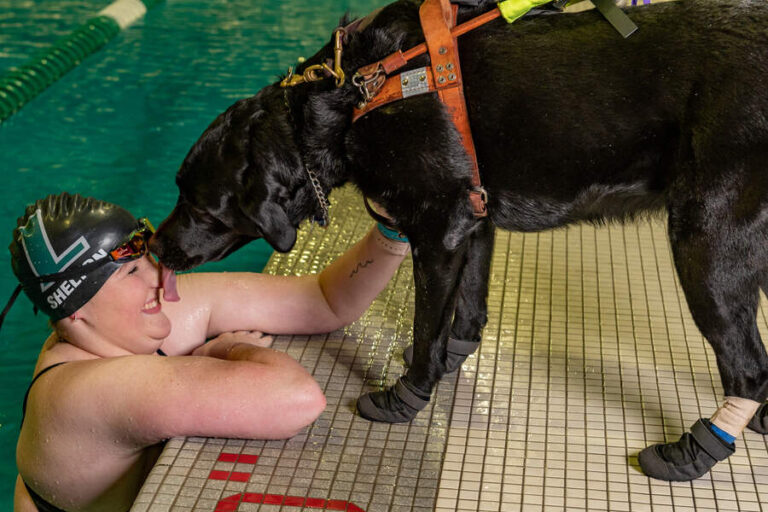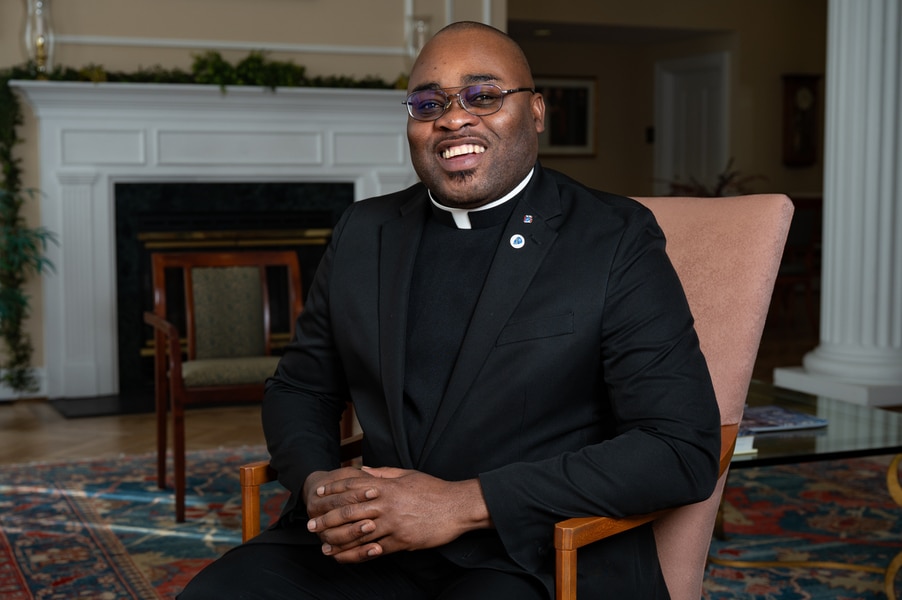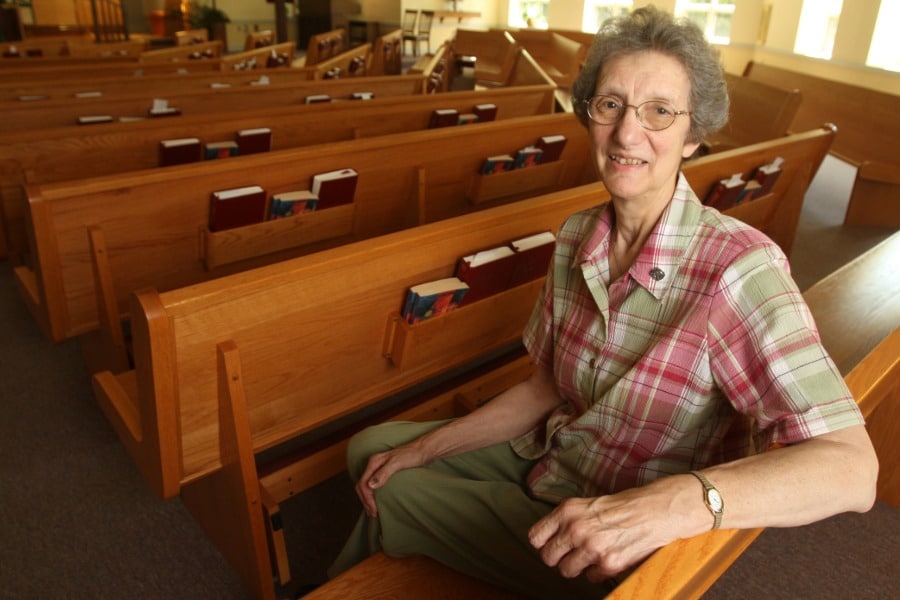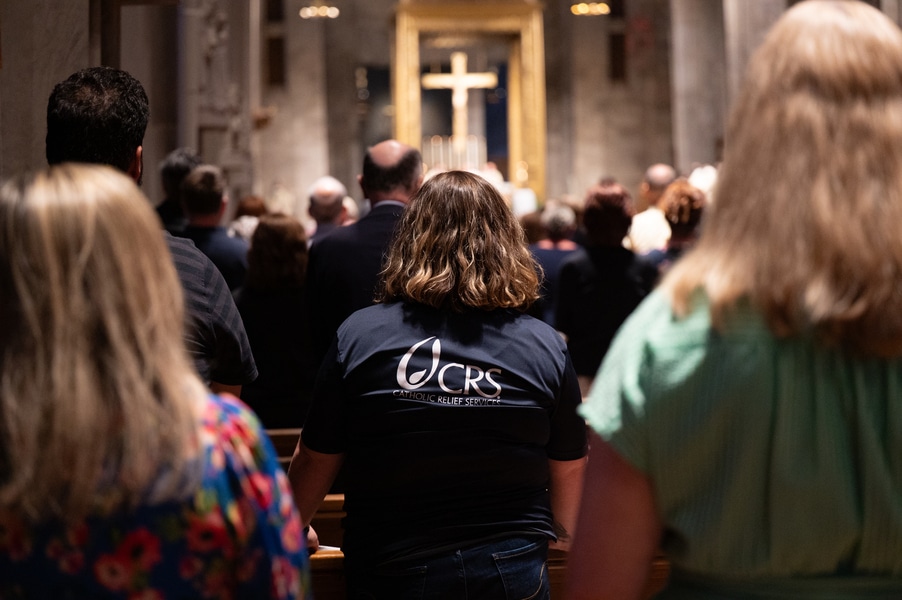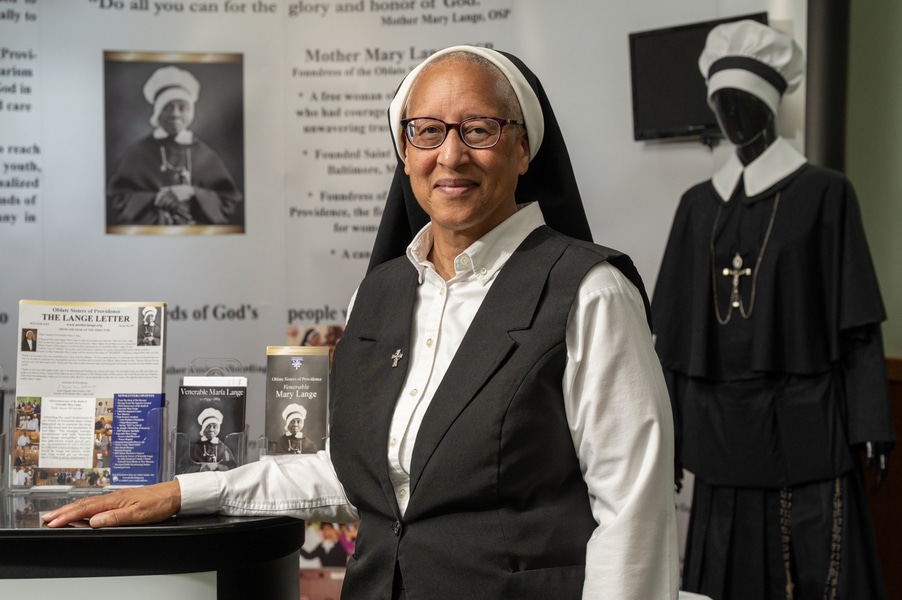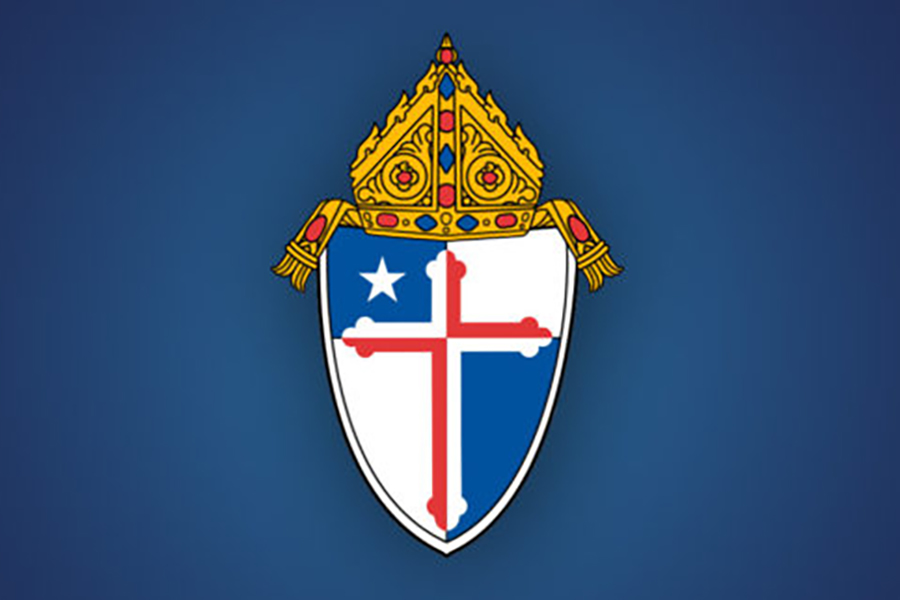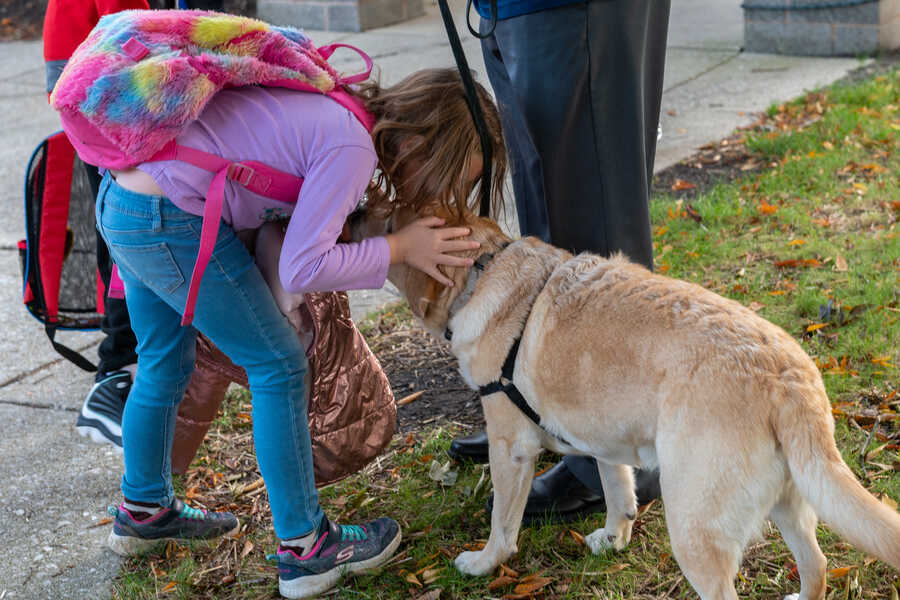
Staff members at one of Catholic Charities’ residential treatment programs for children with behavioral and emotional needs were having no luck calming a boy who recently had a screaming and yelling outburst. They couldn’t even get close enough to begin soothing the troubled youth.
That’s when Carmen intervened.
The 6-year-old yellow Labrador retriever, a trained rehabilitation facility dog for St. Vincent’s Villa and Villa Maria School in Timonium, was allowed into the boy’s space at his invitation.
“Carmen started licking away the tears and the incident was defused in a matter of minutes,” said Aggie Callahan, director of education at St. Vincent’s Villa and Villa Maria School in Timonium.
Callahan, the dog’s secondary handler, noted that the student was able to return to class after spending some quality time with the dog.
Throughout the Archdiocese of Baltimore, four-legged friends such as Carmen are on duty helping their human companions with emotional and physical assistance.
Service dogs are trained to help with specific disabilities and are not considered pets. Yet they and other animals provide friendship as they help navigate life’s challenges.
‘Love’
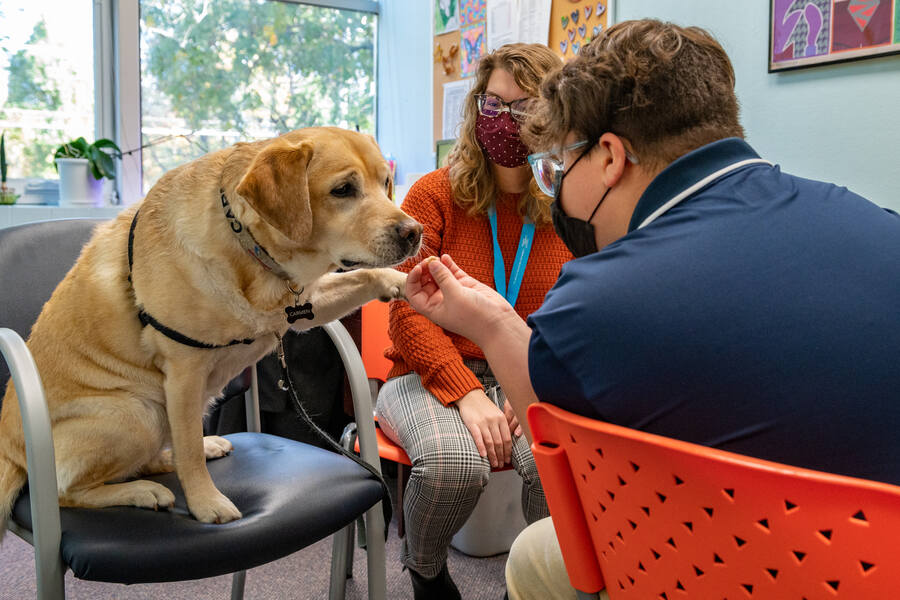
Carmen arrived at Catholic Charities three years ago as part of a pilot program through the Ed Block Courage Award Foundation that places trained dogs in sponsored facilities. She is a familiar presence, greeting students as they arrive and providing emotional support throughout the day.
St. Vincent’s Villa and Villa Maria School serve children with traumatic emotional and behavioral health challenges.
Ezra Buchdahl, school administrator and the dog’s primary handler, said Carmen participates in routine therapy sessions. Buchdahl recalled a time when a 12-year-old girl abandoned by her parents came to the Villa depressed and angry, saying she would never trust anyone again.
“She meant it,” Buchdahl said.
Developing trust and unconditional love for Carmen was part of the healing the student needed to be placed with a foster family. Buchdahl didn’t think that would have been possible without the canine confidant.
What can Carmen do that emergency medicine and interventions cannot?
“Love!” Buchdahl said.
‘Doc is in’
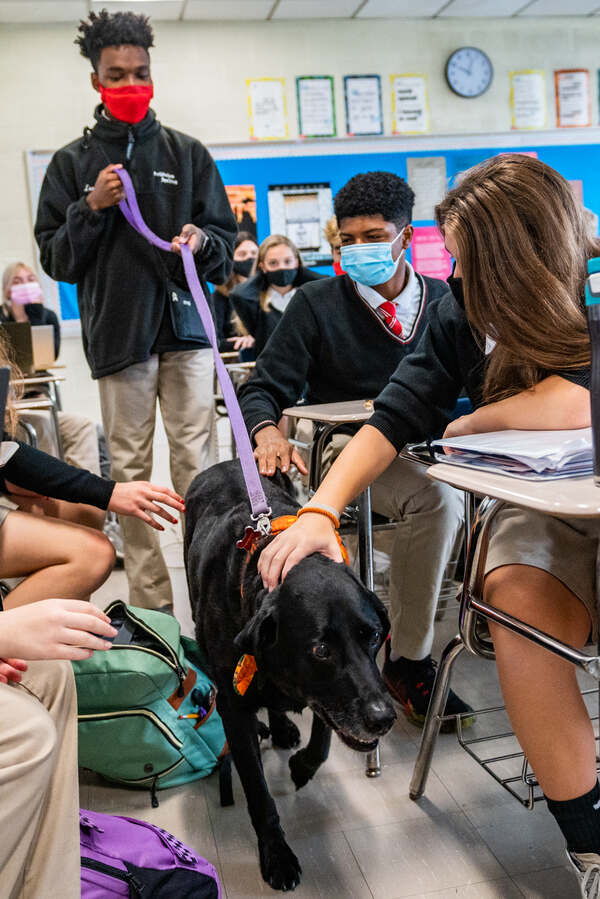
A small chalkboard sign sits on the floor outside Marcie Gibbons’ office at Archbishop Spalding High School in Severn.
“Doc is In,” it reads, referencing the black Labrador that helps Gibbons in her role as a clinical social worker and school counselor at Archbishop Spalding.
While not a trained therapy dog, Doc has taken on the role of a companion at Spalding. He first arrived at the school as a 6-month-old puppy after school administrators had given Gibbons special permission to bring the pet to school while he was training.
On Doc’s first day at the school, a visibly upset student came into Gibbons’ office. Without prompting, Doc put his head on the student’s lap until the tears stopped flowing. Gibbons knew then Doc was special.
Nine years later, the “unofficial mayor of Spalding” has enjoyed part-time hours visiting with students and staff, making rounds to classrooms.
“Doc has been known to interrupt a Latin exam or two,” Gibbons said with a laugh.
Gibbons called the lab a “conduit” and a “safety net.”
“He’s like bubble wrap (for the Spalding family),” said Gibbons, a social worker for approximately three decades and a counselor at Spalding for 15 years.
Stress in young people was already inching upward pre-pandemic, according to Gibbons.
“COVID hit and broke that glass ceiling,” she said, noting that Doc brings a gentle, calming presence.
Guiding eyes
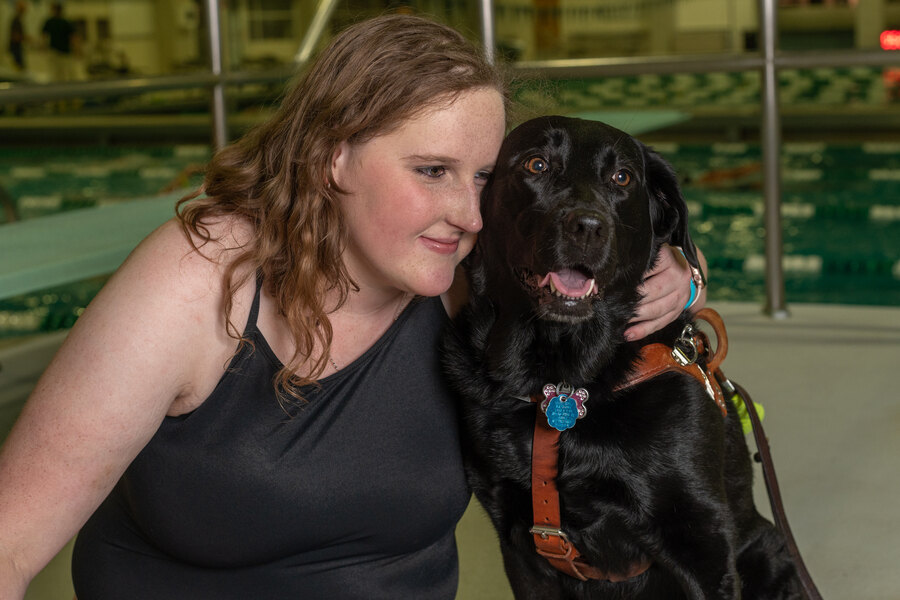
No one would know by Aspen Shelton’s radiant smile and outgoing personality that she has been visually impaired since birth. A brain tumor took away the little vision she had left a year ago.
A sophomore from Texas majoring in communications, advertising and journalism at Loyola University Maryland in Baltimore, Shelton relies on Edwina, her four-and-half-year old black Labrador to help her navigate the Evergreen campus.
Edwina, nicknamed “Eddie,” also sits poolside while Shelton trains at pre-dawn swim workouts as a member of both the Greyhound swim team and the USA Paralympic Swim Team.
“We’re attached at the hip, practically,” said Shelton, who is among the 80 million people in the United States who rely on service dogs, according to the American Kennel Club.
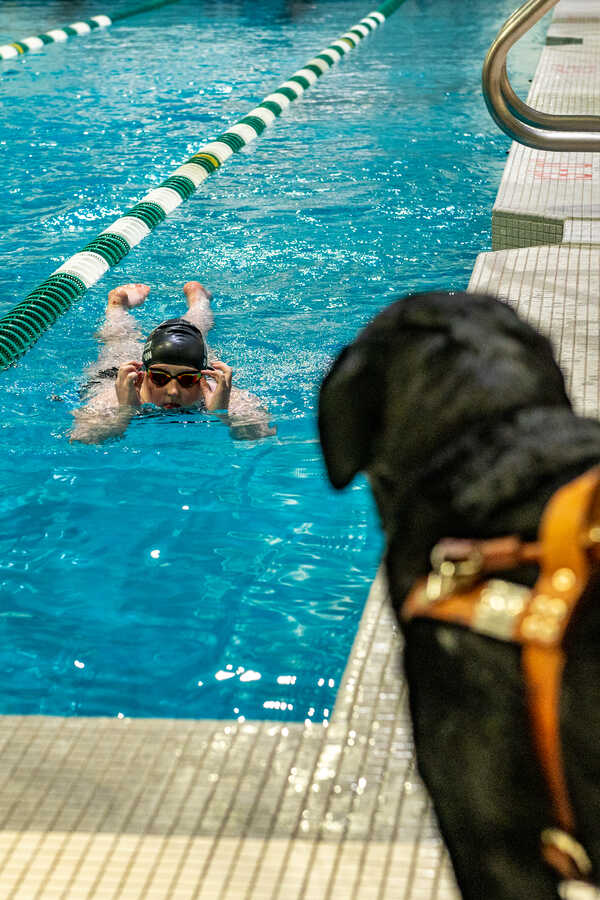
“If I leave the room and she doesn’t realize it, she’ll come looking for me,” Shelton said. “She loves to work. She loves her job. She’s absolutely amazing to my independence and everyday life. She’s a life saver.”
Shelton explained how her seeing eye dog has what she called intelligent decision-making skills. Eddie knows how to prevent her from walking into traffic when Shelton might think it’s safe to cross a street – an important skill, considering Loyola’s location along busy Charles Street in North Baltimore.
Competitively swimming since the age of 8, Shelton, who could not compete in the Tokyo Paralympics because of her brain tumor, looks forward to competing at the Paris 2024 Paralympic games.
Shelton said her favorite thing about Eddie is her bubbly personality.
“She’s all around amazing,” Shelton said, “always bouncing along, tail wagging. I love her a lot.”
Email Kevin Parks at kparks@CatholicReview.org
Click play below to watch video of the three dogs featured in this story.
Also see
Copyright © 2021 Catholic Review Media

